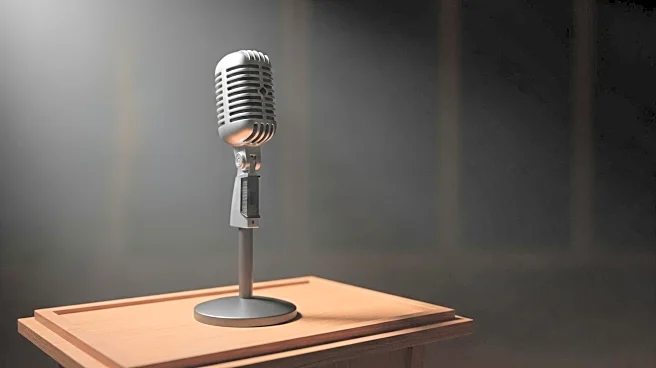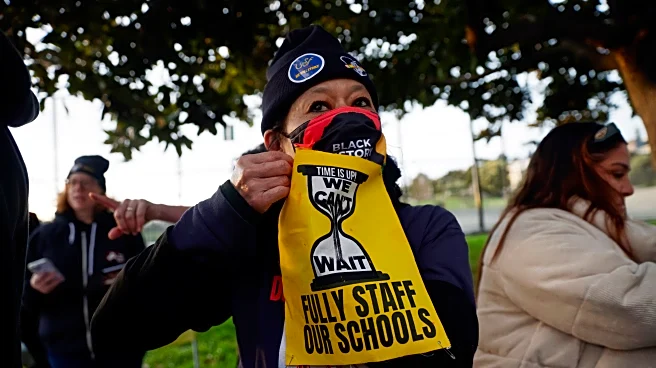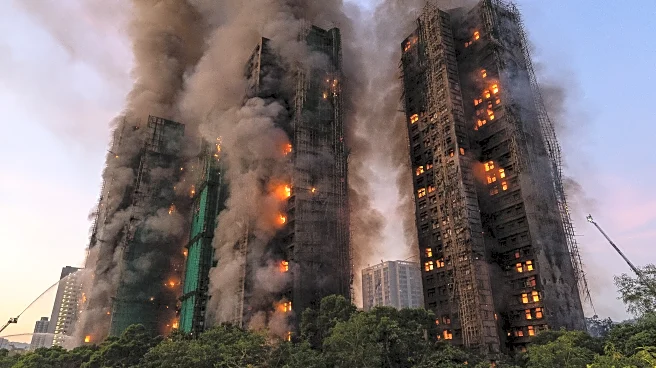What's Happening?
Major U.S. television networks, including Fox News, Newsmax, ABC News, CBS News, CNN, and NBC News, have collectively refused to comply with the Pentagon's newly proposed press access rules. These rules, set by the U.S. Defense Department, would impose restrictions on journalists, including barring them from obtaining unauthorized files and limiting access to certain areas of the Pentagon unless accompanied by a minder. The networks argue that these regulations threaten journalistic freedom and transparency, essential for informing the public on national security issues. The Washington Post and The New York Times have also expressed concerns, fearing legal jeopardy for routine news gathering. The conservative One America News Network is the only major outlet not opposing the plan.
Why It's Important?
The refusal by major news organizations to accept the Pentagon's press access rules underscores a significant conflict between government regulation and press freedom. The proposed restrictions are seen as a potential infringement on First Amendment rights, which guarantee freedom of the press. This development is crucial as it highlights the ongoing debate over the balance between national security and the public's right to information. The media's ability to report independently on military and defense matters is vital for maintaining government accountability and transparency. The outcome of this standoff could set a precedent for future interactions between the press and government agencies, impacting how information is disseminated to the public.
What's Next?
As the deadline for compliance approaches, discussions between the Pentagon and media organizations are expected to continue. However, there is no indication that the U.S. Defense Department will revise or withdraw its new press policy. The media's collective resistance may prompt further negotiations or legal challenges, potentially leading to a reevaluation of the proposed rules. The situation remains fluid, with the possibility of escalating tensions between the press and the government if a resolution is not reached.
Beyond the Headlines
This situation raises broader questions about the role of the press in a democratic society and the extent to which government can regulate media access. The ethical implications of restricting press freedom are significant, as they touch upon the fundamental principles of democracy and the public's right to know. Long-term, this could influence how media organizations approach coverage of government activities, potentially leading to increased scrutiny and advocacy for press rights.











